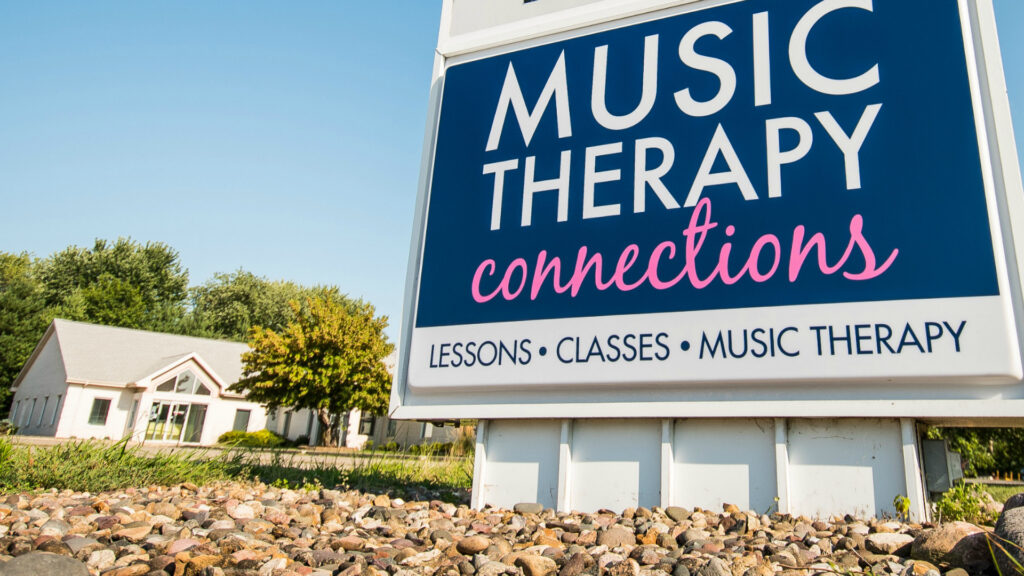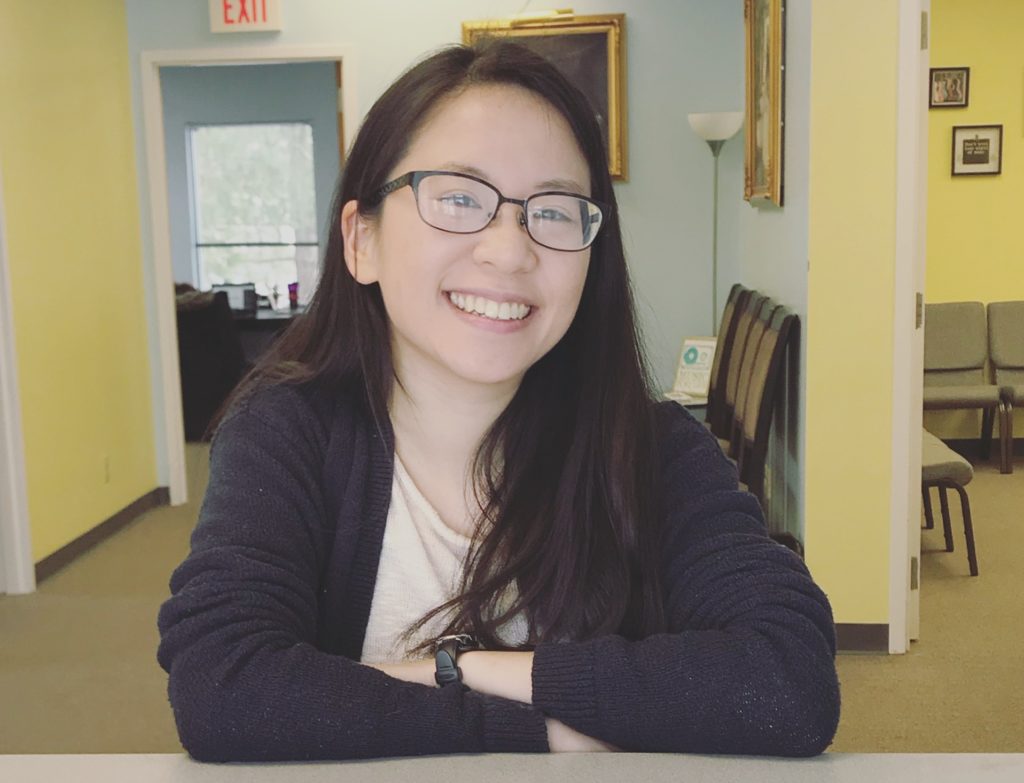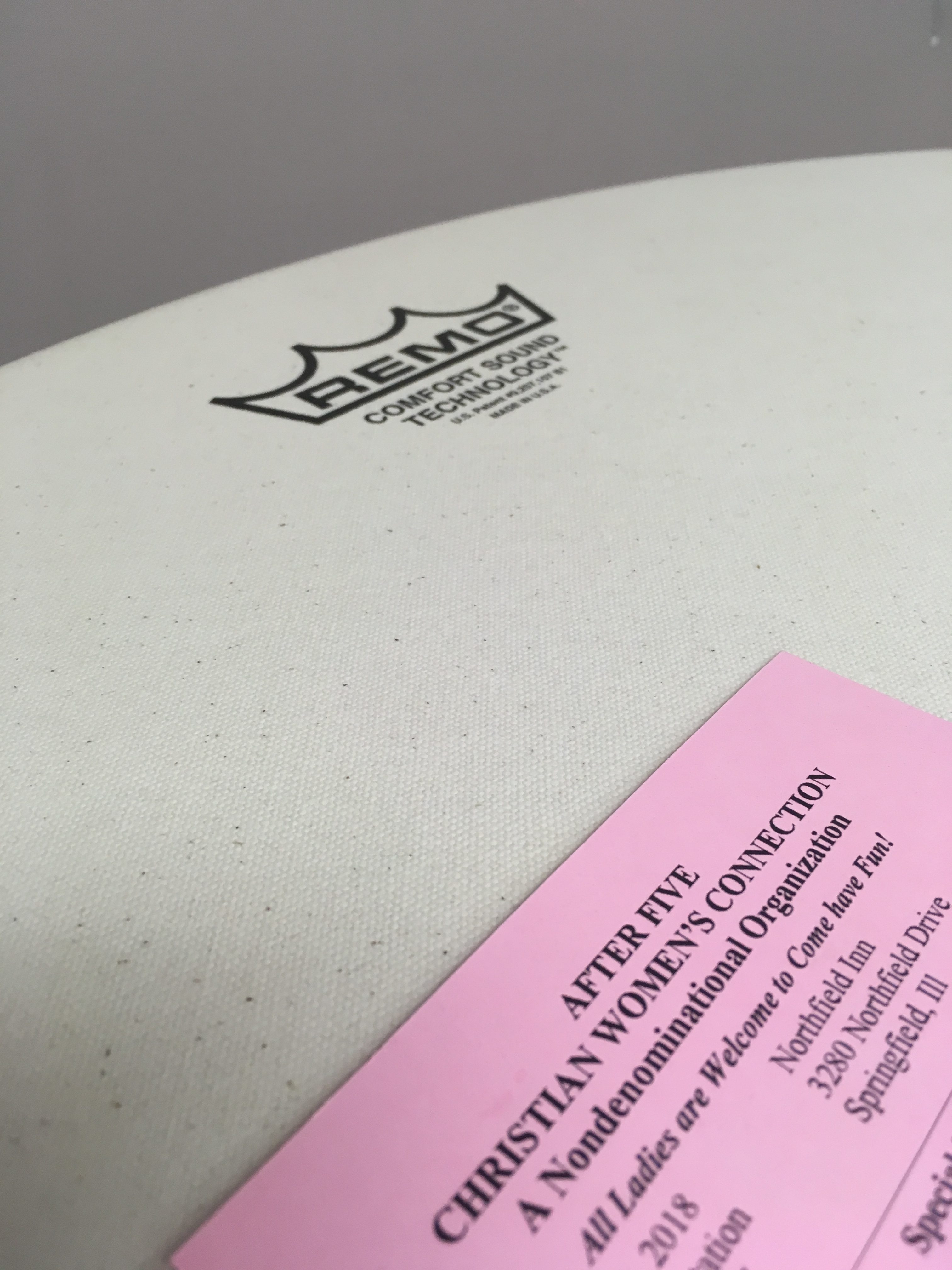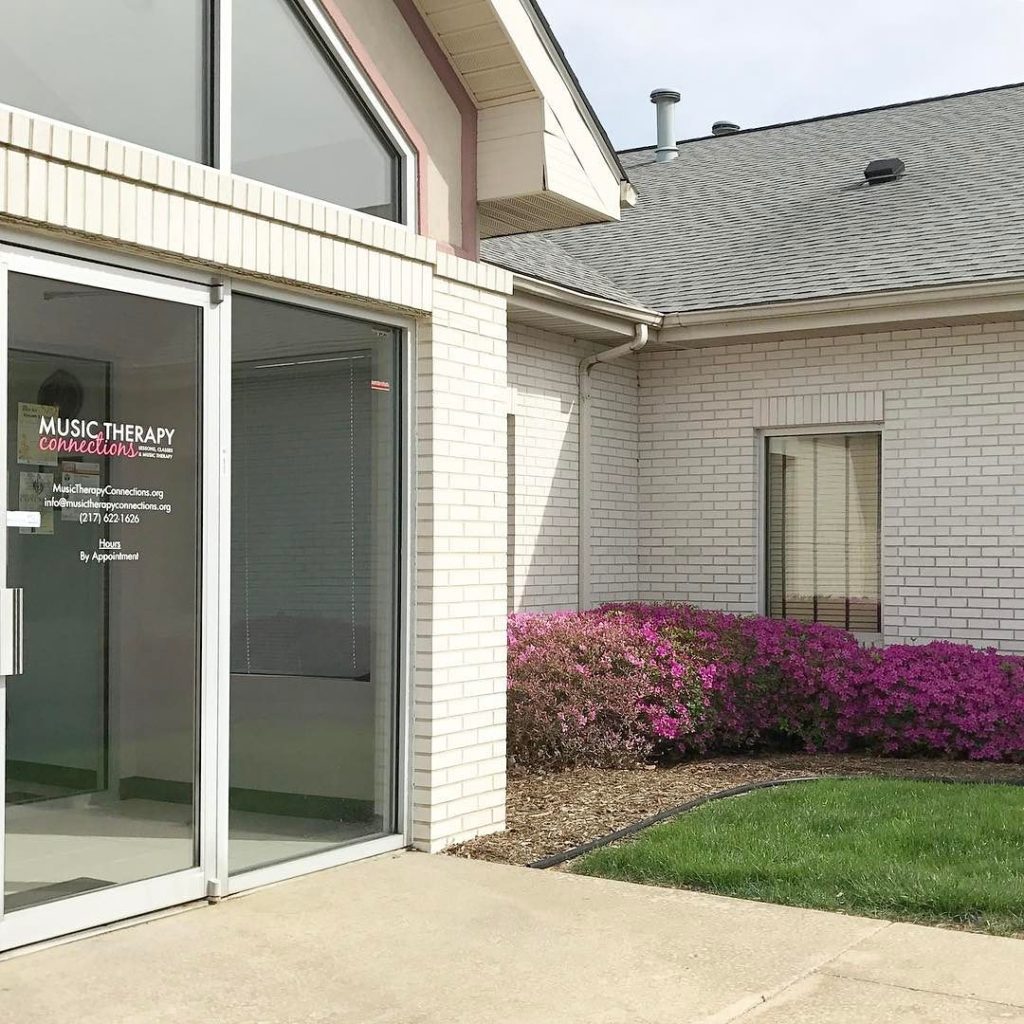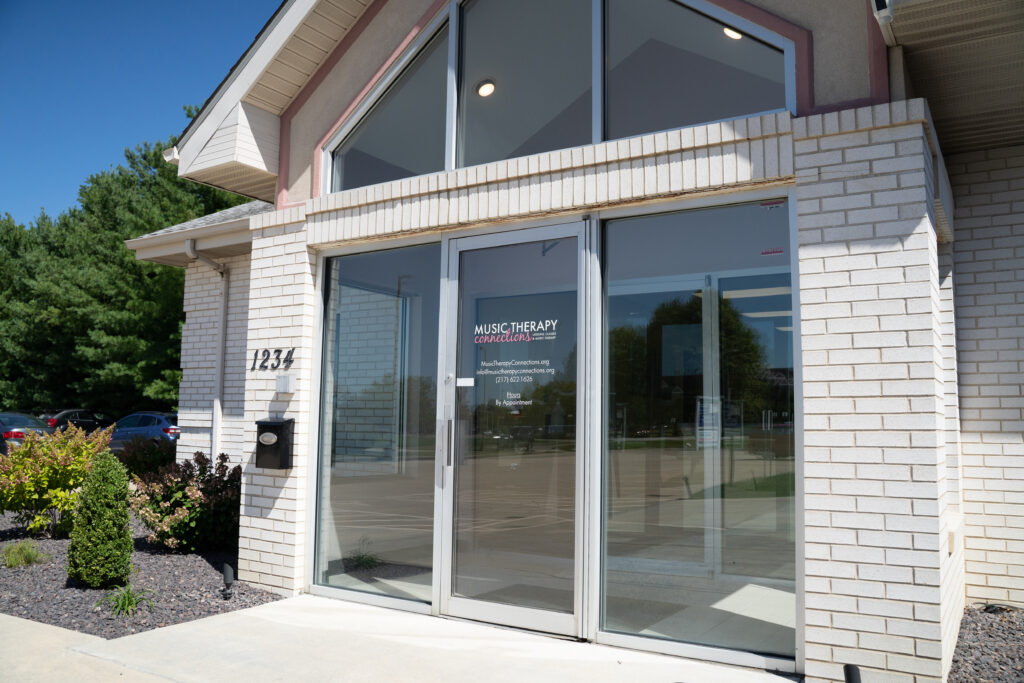by Laura Tam | May 17, 2018 | MTC

This past weekend, many of my music therapy colleagues celebrated the milestone of completing all academic coursework, and many are on the way towards starting internship soon.
As I reflect back on the different life transitions in my music therapy career, I can’t believe that it’s already been a year since I finished these milestones! A lot has changed since entering the “real world,” yet, I still see how some things I learned in internship continue to be relevant in my day to day as a working professional.
For me, internship was a season of self care, capacity stretching, and professional growth. These things have all stuck with me, and continue to be relevant in my work at Music Therapy Connections.
Self Care – With new assignments and experiences each week, internship is very fast paced. It’s so easy to be overwhelmed at all the new responsibilities, but through regularly journaling about my day, my reactions, and the struggles that I encountered, I began to see how important it was to be in tune with my inner thoughts and actively seek opportunities to cope with stressful situations in a healthy way.
For me, self care looks like setting time aside in my schedule or in my commute to mentally and emotionally transition from home life to work life. I also like to do things that remind me that my identity and purpose isn’t defined solely through music therapy, such as spend time to deepen my relationship with my family and friends, as well as exercise.
Capacity Stretching – As a student, you are usually doing music therapy once a week, and preparing and doing documentation for that one session for a couple of days. In internship, you are typically leading multiple sessions a day for five days a week, and decreasing prep and documentation time significantly.
While growth in capacity doesn’t happen overnight, it is something that is essential in the transition from internship to working life. Not only is it about growing capacity, but it’s also about becoming more comfortable with increasing efficiency with planning time. This is definitely something that I am still growing in, especially since I know things will only get busier!
Professional Growth – I love how internship not only prepares you to do music therapy, but to also interact and work with other professionals and other individuals who support your clients. Establishing effective work and professional habits and communicating with others is definitely a skill that I use every day to talk with parents, support workers, future contracts, and to the public.
That being said, there are some things from internship that I’ve since learned were specific to my internship season.
Constant accountability – Every week in my internship, I had time devoted to meeting with my supervisors to discuss any issues and to help me stay on track. Now that I am working, it is important that I take ownership of my work and take steps to develop areas in need even when I don’t have a supervisor to keep me accountable.
Access to Information – As an intern, I took advantage of my student status and utilized my school library’s database of research articles on a weekly basis. Now that I’ve officially graduated, I miss no longer having that access through my student account. I guess part of working in the real world is about letting go of student perks, eventually…
That’s all my post-internship thoughts for now.
Shout out to all the new interns, current interns, and post-interns who are all walking this music therapy journey with me! If you have any internship stories, I’d love to hear them in the comments below!
by Laura Tam | Apr 25, 2018 | MTC

Psst…Do you have a loved one, child, or friend who enjoys music? Are you a teacher, administrator or other professional interested in additional community resources?
Come join us on Sunday, May 6th for an open house at Music Therapy Connections! We love sharing with you on the blog every week, but we’d love to connect in person even more.
That sounds awesome, but I have a packed schedule and I’m not sure if I can make it.
We completely understand that your weekend might be busy. No worries! Stop by anytime between 10am – 4pm. At 1 pm, we hope you can participate in an all-ages drumming experience for the chance to win our big giveaway!
What should I expect when I come?
There will be opportunities to enjoy refreshments, make your own instrument, explore our facility, and talk face to face with our music therapists to learn how we can best serve your needs — whether you are a parent, community member, teacher, or administrator. We can’t wait to meet you!
What can Music Therapy Connections do for me?
We are a team of music therapists and music educators who have a heart to serve all ages in our community. We love working together with schools, day cares, senior care facilities, and local families to design music programs that fit the needs of whoever may benefit from music therapy, music lessons, or adaptive music lessons.
Know someone in your life who might be interested? Bring your family, a friend, or colleague. Spread the word! All are welcome, and we’d love for you to join us!
by Laura Tam | Apr 11, 2018 | MTC
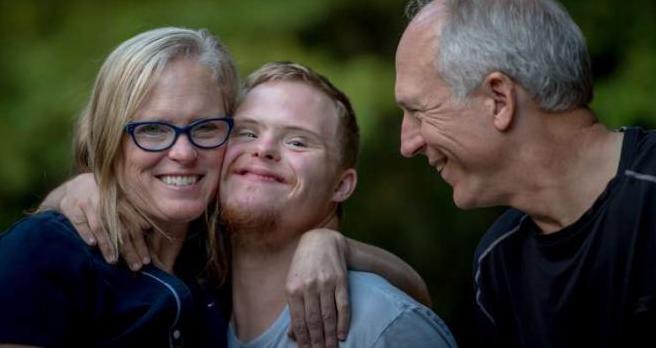
Helping professions come in many different forms. And while music therapy is an effective therapy modality for individuals of all ages and needs on its own, it can also be a part of a bigger team of allied health professionals.
In this post, I want to showcase other health professions that serve to accomplish many of the same goals as music therapy, as well as show how the expertise of each distinct profession can be used to collaborate with music therapists to maximally serve the needs of each client.
SPEECH THERAPY is implemented by a speech language pathologist (SLP), who works to prevent, assess, diagnose, and treat speech, language, social communication, cognitive-communication, and swallowing disorders in children and adults (American Speech-Language-Hearing Association, n.d.)
What might it look like for a speech therapist and music therapist to co-treat together?
For a child who has a speech impairment, a speech therapist may help identify certain physical and neurological components with which the child is having difficulty. The speech therapist and music therapist may design interventions to address the specific impairment, which might look like composing a song that incorporates certain syllables within the song lyrics, certain rhythms that address various motor coordination, and certain note durations to improve breath support.
PHYSICAL THERAPY includes treatment by a physical therapist that creates individual treatment plans to match each person’s goals, helping people improve their fitness and function, avoid surgery, reduce the use of opioids and other drugs, and partner in their own care (American Physical Therapy Association, 2018, n.d.).
What might it look like for a physical therapist and music therapist to co-treat together?
For individuals who have suffered a stroke, it may be hard for the patient to walk at a regular pace for long durations of time. A physical therapist may assist the patient in the physical components of exercising while at the same time, the music therapist may match the exercise with a regular rhythmic beat. By matching the body’s movement with an auditory cue, duration of exercise increases, perception of fatigue decreases, and movement becomes more organized.
OCCUPATIONAL THERAPY helps people across the lifespan participate in the things they want and need to do through the therapeutic use of everyday activities. Common occupational therapy interventions include helping children with disabilities to participate fully in school and social situations, helping people recovering from injury to regain skills, and providing supports for older adults experiencing physical and cognitive changes (American Occupational Therapy Association, n.d.).
What might it look like for an occupational therapist and music therapist to co-treat together?
A child with Autism Spectrum Disorder may have difficulty with the daily routine of dressing and undressing. An occupational therapist may work with the child to incorporate certain adaptations, such as adding velcro or elastic to clothing to make changing easier. A music therapist may then compose a song with lyrics that include step-by-step directions for how to open and close the velcro on the child’s jacket.
There are so many ways that individuals of all ages and needs can receive support to have the best quality of life. Isn’t it amazing that all of these therapeutic modalities have their own expertise, yet can come together to form a powerhouse interdisciplinary team?
To find out more about how music therapy can be a part of your loved one’s care, click here.
REFERENCES
American Occupational Therapy Association (n.d). About occupational therapy. Retrieved from https://www.aota.org/About-Occupational-Therapy.aspx.
American Physical Therapy Association. (n.d). About physical therapists (PTs) and physical therapist assistants (PTAs). Retrieved from https://www.moveforwardpt.com/AboutPTsPTAs/Default.aspx.
American Speech-Language-Hearing Association. (n.d). Learn about the CSD professions. Retrieved from https://Amwww.asha.org/Students/Learn-About-the-CSD-Professions/.
by Laura Tam | Feb 6, 2018 | MTC

My name is Laura, and I am the new music therapist at Music Therapy Connections! A lot of my own personal journey to the profession of music therapy got its start from Music Therapy Connections, and I am beyond excited to be working with such a great team, as well as getting to share my experiences with you!
To start out, I would love to share a little bit about myself:
- Music was a big part of my childhood. My three siblings and I grew up taking piano lessons together, and we also all chose to play brass instruments as we got older.
- I love my job! Music therapy challenges me to not only be a skilled musician, but to make meaningful therapeutic connections with individuals of all needs. It is such a privilege to be a part of each client’s individual journey!
- I wouldn’t be here without my teachers. As a recent Master’s graduate, I have had many amazing teachers impact my life. From my beginning piano and French horn teachers to my college professors, each have helped me overcome challenges and have given me the courage to aim high.
Thanks for getting to know me, and in the spirit of my last point, I highly encourage you to thank someone in your life that has impacted you and has made you who you are today!
All the best,
Laura
by Alisabeth Hopper | Jan 19, 2018 | MTC, Services

This week has been an eventful one at Music Therapy Connections! One of the most exciting parts of this week happened when I had the opportunity to share a presentation with a local women’s fellowship group.
They were so welcoming, kind, and very intrigued by music therapy. I had the pleasure speaking with them and sharing a little bit of what do as music therapists! They asked questions, we sang, played instruments, and laughed together over the course of my time with them.
My favorite questions of the night were…
- Do you have to be musically inclined to receive music therapy? No, that is my job as the therapist! The benefits of music therapy are available to anyone, regardless of musical background.
- Do you work with people who suffer from Alzheimer’s Disease? Absolutely! For more information on how we support neurologic engagement, memory recall and more click here.
- Are your services covered by insurance? Many states offer a waiver for music therapy services; the state of Illinois does not at this time. Because of that, we keep our fees affordable (about the cost of a co-pay) so that those who are interested in services can absolutely pursue them!
This event, and others like it, are a vital part of what we do at Music Therapy Connections.

I think our team would agree that we became music therapists to help others, share music, and share moments. We know that what we do is so important for the nearly 200 people that receive our music therapy services from week to week, and showing our community what we do, how we do it, and answering any questions they have is the foundation to sharing our services with even more individuals!
We know that beyond anything else, we must invest time and care into our community for the business we love to grow and flourish. We have the deepest appreciation for our Music Therapy Connections community, Central Illinois community, and our online community.
Thank you to you all!
Do you know a group that would be interested in hosting a music therapist as a presenter? Do you have any questions yourself? We would love to speak with you; please email us at info@musictherapyconnections.org.
by Alisabeth Hopper | Jan 12, 2018 | MTC, Services

This month, Music Therapy Connections made another addition to our weekly services! Rachel Rambach is heading up the launch of a new music therapy group for older adults. I wanted to interview Rachel and share with you how we approach music therapy for older adults.
Alisabeth: Rachel, thank you so much for taking the time to do this interview. I am really excited to share with everyone the great work you’re doing!
Rachel: It’s my pleasure! I’m really excited about this new avenue of services, especially since it was seeing first-hand the effect music had on my grandmother that led me to music therapy. She was diagnosed with early onset Alzheimer’s Disease when I was in middle school, and as the disease continued to progress, I saw that she was still able to enjoy and communicate through music. One of my last memories with her is singing Christmas carols together at her nursing home.
A: What does music therapy with older adults look like?
R: My new group takes place in the memory care unit of a large senior living facility. There are about 15 residents on the unit, and the group varies in size each week depending on how many residents feel up to coming. The group is held in a really nice common area with a piano, comfy chairs, and couches.
I start with a welcome song, and then sing a variety of tunes both with and without my guitar. I also bring movement props like scarves and small percussion instruments like hand drums and shakers. I reserve the last 15 minutes or so for singing and playing the piano, since the residents really enjoy that. We end with a goodbye song, and then I usually stay for a few minutes to chat with everyone before I leave.
A: What kind of music do you use with older adults?
R: This is the fun part! Since I’ve worked primarily with kids up until now, it’s been a new adventure building up my repertoire of songs for older adults. I’ve compiled a variety of traditional folk songs, spirituals, hymns, musical numbers, older country music, and popular songs from every decade all the way back to the 20s. Some of the residents have also made song requests during our sessions, so I make sure to jot those down and prepare them for the following week.
A: What goals would a music therapist work toward with older adults?
R: Since this is such a new group, right now I’m working on building rapport with the residents and establishing group cohesion. My immediate goals are engagement through singing, facial expression, and body language, and as we continue our work together, I would like to increase verbal communication, encourage gross motor movement, and focus on reminiscence as well.
A: Why does music therapy work for older adults?
R: It really is magical to see an older adult, especially one suffering from memory loss or dementia, connect with a song that has meaning for him or her. Music affects and stimulates the brain in a way that speech alone does not, which is why it can be such a powerful form of communication and therapy for an older adult. The stimulation brought about by music can lead to conversations, surfaced memories, and expression that would not otherwise occur.
A: What would you say to someone who is thinking about music therapy services for an older adult in their life?
R: I would answer first as someone who has seen the powerful effects of music therapy on an older adult family member: it’s an opportunity not only to work on the goals I mentioned above, but to bring added joy into your loved one’s life. On the surface, music therapy can look or seem like a form of entertainment, but the benefits are far-reaching.
Thank you Rachel, for answering some questions today. I am so excited to see this new program grow!
If you or someone you know would be a good candidate for music therapy you can register them for services below! If you have questions email us at info@musictherapyconnections.org!



